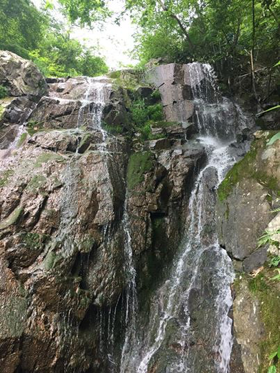Spring, 2010
Some of you remember Victoria, from Taizhou. For those of you who don’t, Victoria is- I think the east coast term is wicked- smart, clever, beautiful, and ambitious as all hell. In other words, a dream. Last year she put on a show for Scott and his kids and me. You know that these trips for Scott and me are fun and we learn a lot, but there is an awful lot of showing off and maneuvering behind the scenes of every event. There is a lot of jockeying to see who sits at the head point of the (round) table, next to the person paying for lunch. Last year, Scott usually got to sit next to the person paying for lunch, and on the other side was the most senior or most powerful leader (this is where the personal jockeying comes in- sometimes we spent two or three minutes standing around the table, while two people fight out who is going to be the least important. Sort of Alphonse and Gaston, with every “No, you go first,” a bluff. First one to call the bluff wins).
To show off her power last year, Victoria disdained the standard Chinese lunch at the big round table in the private room, with the servant girls and the endless flow of food and liquor. Victoria chose to serve Western food (steak, potatoes, vegetables) and make everyone, including her boss, her bosses’ boss, and a couple of other bosses, eat it. Oh, and it was served at a big rectangular table, like in regular countries, and everyone got a fork and knife instead of chopsticks. This was by way of saying, look at the kind of food I can order, and I’m paying for lunch, so eat it and shut up and if you can’t use a fork, then go ahead and ask for chopsticks. We’ll all notice. I didn’t actually hear her say this, but this is my impression. This is the sophomore cheerleader telling the seniors that they aren’t the only cool kids on the team, and I’ve got moves you haven’t seen yet.
Victoria is a very senior person in the government publicity department, which sounds like a dead end job, but job titles don’t always match power. Think of her job as controlling information that goes out, and it sounds a bit more serious. This is the xuan chuan bu, the propaganda bureau. Victoria was up for promotion to vice mayor when she was in Chicago, and this would be a very powerful position. She already has gathered around her a stable (I think that is the right word) of smart, beautiful women, who adore Victoria and comprise part of her personal empire. She has a driver, of course- in the US we would call him big and strapping- and a big black car.
Jasmine, who works for Victoria, picked me up on the interstate (I get handed off between cities, because the expressways are all so new that only local drivers know the directions). We had a fairly modest lunch- only a vice mayor and a director of a development zone, plus assorted hangers-on, and then went to the PRC war memorial that memorializes the epic battle in January, 1955, between about 20,000 PRC soldiers, plus 180 planes and a bunch of ships with big guns, against about 1100 holdout Kuomintang ragtag soldiers on two small islands off the coast of Taizhou. After bombing the shit out of the island, and strafing it with planes, and then ships unloading shells for a few hours, the 20,000 PRC soldiers invaded the island and in two hours the enemy gave up. This sounds not very impressive, and it probably was not. But most of us were alive at the time, and you remember Kemoy and Matsu, and this was six years after the declaration of the PRC, and two years after the cessation of hostilities in Korea. John Foster Dulles had negotiated a joint defense treaty with the people on Taiwan in 1954. So my take on this is that the PRC decided to show the Chinese people, and the world, especially the US, that it could have another stalemate in Taiwan, just like in Korea, if it chose to let the Taiwanese run too wild. So look at our coordinated air, sea, and land attack, and we crushed the shit out of the defenders, and anyone else who wants a piece of me can get in line. The US then asked the Ruskies to ask the Chincoms to not attack a larger island, with 20,000 Kuomintang soldiers, because Shen Kai Shek’s son was on the island, so the PRC let the 7th Fleet remove the 20,000 soldiers to Taiwan, and the US learned to play it coy with Taiwan. Again, I didn’t hear the 19 year old Army cadet (cute as hell in her uniform) say any of this, but I’m just free lancing here.
Dinner was the big deal. Men in China, even men in pretty high places, tend to dress like….. well, me. A little shorter, a little neater, but in the same general direction. Socks. No suit and tie. Victoria, of course, does not. Victoria dresses UP. There were from ten to fifteen people at dinner. The number kept changing, because apparently the hotel in which we had dinner (probably owned by the government) also serves as the McDonald’s, the Mitchell’s, the after school hangout, for government people, and on any given night, there are about half a dozen (I’m not kidding) dinner meetings going on in separate dining rooms, and people keep rotating in and out of rooms like aldermen going to funerals or the president of the high school social service club making sure everyone knows the directions from the hangout to the event on Saturday morning. People move in and out making appearances, having a couple of toasts, maybe eating a little, telling a joke, a moving anecdote, some praise for the highest leader already in the room, and then moving on.
Victoria has some power. You can tell by how much deference is provided when she walks into the room, or by the references to how soon she will be walking into the room. People in the government (and probably outside the government as well) use cell phones like- well, probably, teenagers. People call each other to tell each other that they will call in five minutes when they are already only six minutes away. This is especially true for bigger leaders. The conditions in the room change when a leader walks in. There is a really unbelievable amount of running around to get chairs and moving furniture and people adjusting themselves in the room according to rank or desired rank. The big dog gets the best seat.
I don’t know how much power Victoria has, but at dinner, the vice mayor sat three seats away from her. I was on one side, and next to her was a provincial official from the training office, which is the office that sends students to IIT and other schools around the world. The training office is in the supervision department, which is the government. The organization department is the Party corresponding agency, but they obviously work together. The supervision and organization departments handle Party discipline, evaluation of mayors, vice-mayors, and provincial leaders, and promotions.
Dinner was very good, the usual mix of wonderfully prepared fishes, shellfish, vegetables, some meat, some noodles. You know that the dishes are all set on a big rotating table, and people pick things out as the table is slowly rotated by people looking for their favorite dish. Instead of the pretty typical Chinese wine (which is rice liquor), we had a very nice red wine and something I have never seen in the US, but should be available everywhere, and that is corn juice. It’s just corn juice, some honey, and water, and it is good. A nice alternative to any other juice, and especially the Chinese wine.
Others at the table were An Chen (Andy, for Scott), who is a transportation advisor to the mayor of a county. His job, I think, is to get money from the Zhejiang Investment Group, LLC, to build roads in the county. The ZIG, for those of us in the know, is a provincial state-owned investment company that provides funds for public projects, but gets to say no to projects that the governor of the province (or the provincial branch of the Development and Reform Commission) does not like. Next to Andy was Danny (whose Chinese name I can’t remember) and who left early to makes pitches in other rooms. He was replaced by Mr. Yan (who never had an English name, I don’t think), who is, in fact, on the Board of Directors of the ZIG. Quelle surprise!
Victoria was also running in and out of the room at dinner, but she was back for the two big surprises. The first was an entire boar’s head, meat sliced into pieces and the bone bleached white. Everybody oohed and aahed just like they did in Raiders of the Lost Ark, or whatever the movie was, when they brought in the monkey heads for dinner.
The second big surprise was the Big Leader. I don’t know how big. I mean, physically, he was a Buddha, but in terms of power, Victoria changed her seat next to me, she moved her entire place setting and food and glasses over one seat, and personally put clean plates and chopsticks and everything else in the empty place (this would be done at any other time by one of the serving ladies, but this was a show of deference, before the guy came into the room). The vice mayor left the room, his vice apparently being too small to merit attention. The Big Leader seemed like a nice enough guy- he was friendly to everyone, and sat next to me and we did toasts, as he did with most everyone in the room. When he stood up to do the toast with me, I called him on the fact that my glass was full, and his was only half (toasts are often of the drain-the-glass variety). Toasts are supposed to be done with approximately equal quantities and color of liquid. The Big Guy laughed. He liked that I called him on it, in the way that an emperor might enjoy tolerating the impertinences of a bug.
The Big Guy stayed for about twenty minutes, enough to survey the room for who was there and not there, and, having marked his territory, moved on.
By this time, most everyone had moved on to other dinners and meetings down the hall or next door. Mr. Yan, the ZIG board member, decided that he and I needed to have a bottle of Maotai, which is done in the same casual way one would propose drinking an entire bottle of grain alcohol. We got about half way before a modicum of sense was restored, and we evacuated to the outside.
At that point, Victoria and Jasmine and Jason, the young English major who was along for the ride, decided they needed to entertain me. We adjourned to KTV, which merits a little of its own description.
KTV is a chain of karaoke-night club-men’s entertainment clubs that seem to have sprung up all over China. They are decorated like German punk meets disco- all colored glass and mirrors and strobe lights and shiny metal and lights in the floors and live fish in the walls. I’ve seen two of these now, and the general idea is the same in both. There are several floors, each with a maze of different size private rooms, most suitable for a group of about four to eight people, with couches and video screens and soft lighting and a few low tables for snacks and drinks. Every room has a pretty sophisticated karaoke set up, with thousands of songs in Chinese and English, and the video screen plays the music and displays the words, in English if the song was recorded in English, with some appropriate background video of boys and girls falling in or out of love, or whatever. The videos, as far as I can tell, are all G-rated, but the rooms might not be. You rent the room by the hour, and you can have drinks and snacks delivered or not, and if the meeting goes well, you can probably stay all night. The doors don’t lock, but waitstaff should be models of discretion. Each room has a private bathroom, some with shower.
In a China that is outwardly formal and cool, these places offer a really intriguing alternative. At the KTV in Liaoyang, in Liaoning Province, about six of us went in the afternoon, before all the real business started. There were about twenty young girls all seated in one room. I asked the host who they were, and he told me secretaries. I presume that answer counts for working girl in any language.
Anyway, the driver for a government person in China has an aggressive aspect to part of his personality that corresponds with the status of his leader. We got in the car, and the driver starts honking his horn before we even get out of the driveway of the restaurant/hotel. The bigger leaders get a car with a klaxon, which of course we used in getting through traffic to the KTV. The streets in Taizhou along the river are studded on the edges with some sort of yellow reflective light, almost like Christmas lights, so we are driving through what feels like the Yellow Brick Road, with horns and klaxons and me and Jason and Victoria and Jasmine.
We got to KTV, got inside, and had a room prepared. Karaoke is a very big deal in China, and everybody is willing to participate, regardless of voice quality, which was good for me. We all selected songs- the number of songs in English, some with different versions, is in the hundreds. Everybody in China knows the music and words to American songs, because they learned them in school, in the US, at KTV, or on the radio.
We sort of took turns leading on a song, and all of us pitched in as we could, and the music is loud enough and the microphones big enough so that almost anyone sounds good enough, and we danced for a couple of hours, to slow songs and fast, and sang and laughed and cheered each other as somebody finally got a note pretty near correct, and the image of slow dancing, holding first Victoria, and then Jasmine, is probably good enough to end this e-mail.
How was your day?

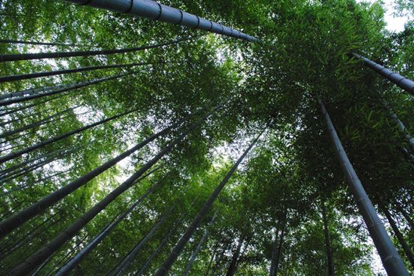
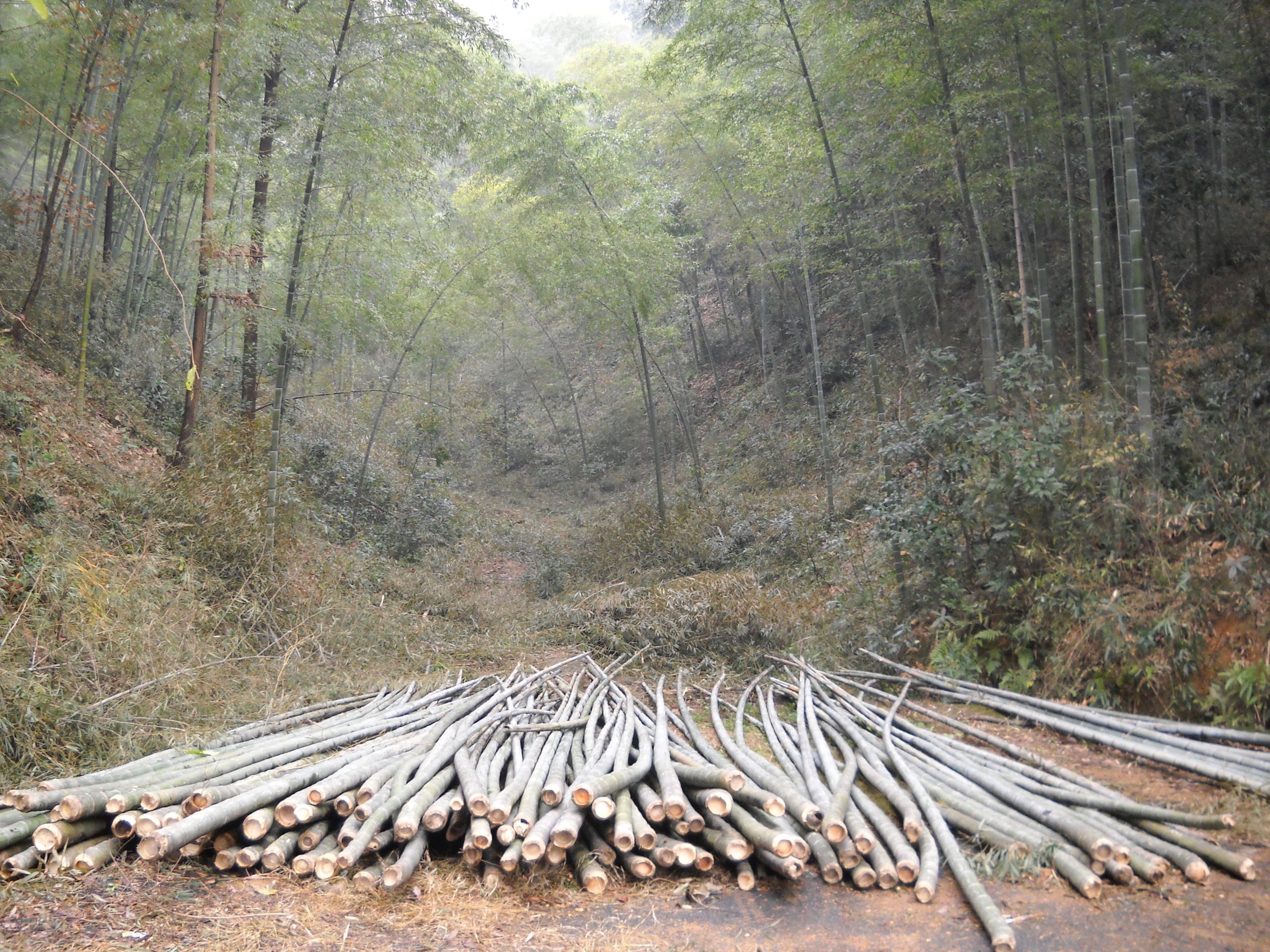 Bamboo harvest
Bamboo harvest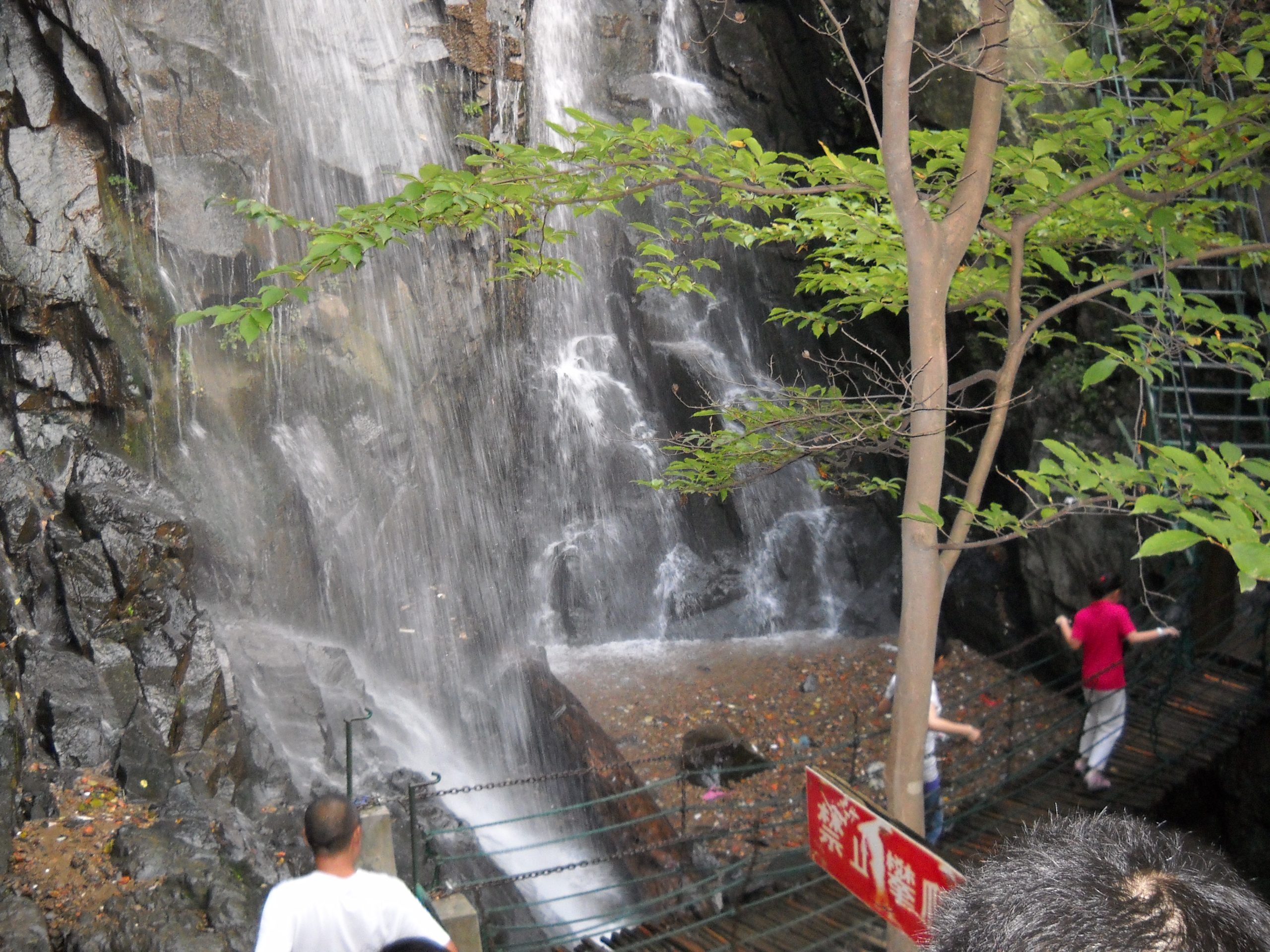 The wood slats are more than a few inches apart … just for fun
The wood slats are more than a few inches apart … just for fun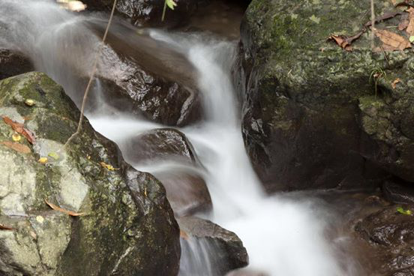 Photo: Leon Chen, at
Photo: Leon Chen, at 